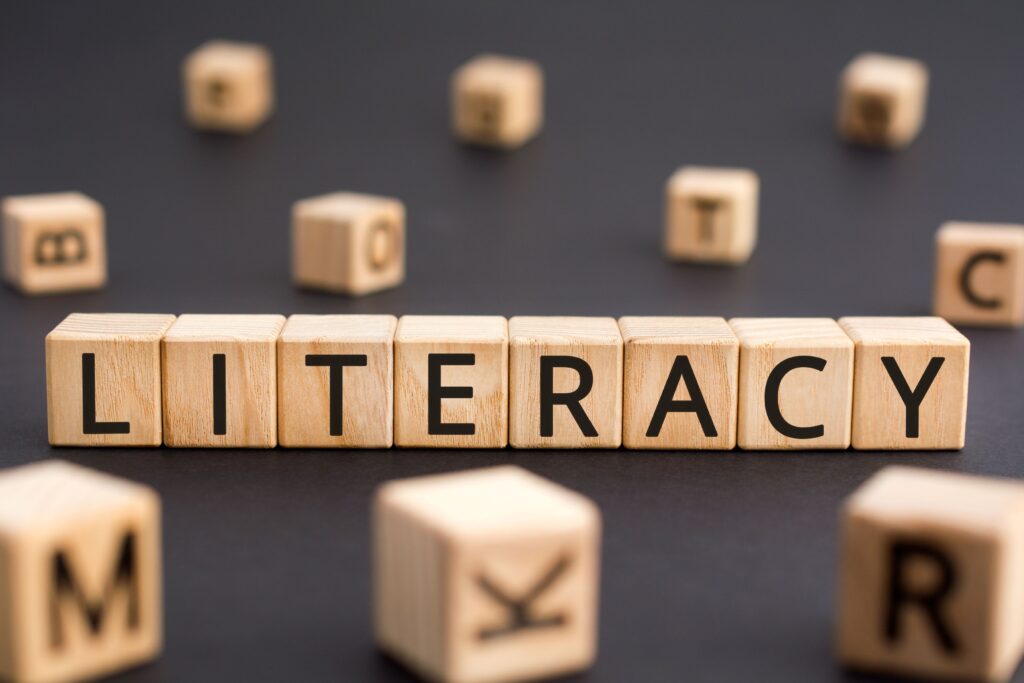I was a first-year teacher in an inner-city elementary school when I realized I wanted to go back to graduate school, study literacy, and become a reading specialist and literacy coach. I had the opportunity to become a reading specialist in an elementary school before becoming a district literacy coach and now a national literacy consultant.
For me, my personal passion and purpose in life is exhibited in being a literacy coach. Our students and teachers around the world deserve an incredible literacy coach, and we need to teach the world to read. Let’s walk through how to become a literacy coach.
What Does a Literacy Coach Do?
It’s important to remember that in education, terms like reading specialist or literacy coach are often interchanged and the roles may overlap in schools and districts. However, while a reading specialist is often responsible for working directly with students, a literacy coach is responsible for working with teachers. Since we have a shortage of funding and people in public education, the literacy leader in a school often fills the responsibilities of both positions.
The primary roles of a literacy coach are usually centered around the culture of literacy in the school, the implementation of curriculum, data-driven instruction, and professional development. Literacy coaches are a link between teachers and administrators who often serve on leadership committees, child study meetings, and data or planning sessions. They lead professional development for teachers, attend conferences, and work to increase student literacy achievement across the school.
Their responsibilities range from leading weekly planning meetings with every grade level to hosting monthly book clubs for teachers. They implement the Family Literacy Month for their school and plan motivational literacy events for students throughout the school year. The oversee literacy diagnostics and assessments and analyze the student reading and writing data. The roles and responsibilities differ by school or district but at the end of the day, they are the same in that they revolve around creating classrooms to support literacy success.
Literacy Coach Requirements: Skills
The skills required for a literacy coach are similar to the requirements of an excellent teacher or principal. Patience, leadership skills, creativity, organization, and resourcefulness are essential to thrive in this role. Good time management skills, scheduling, data management and analysis are also important skills for a literacy coach to embody.
Strong communication skills and building solid relationships give literacy coaches the advantage they need to create positive change in a school community. Lastly, literacy coaches with adaptability, flexibility, and vision are able to make lasting impact in schools and districts in reading and writing instruction for readers of all ages.
Literacy Coach Requirements: Education
While there are elementary school literacy coaches around the country who never taught elementary school, I believe that the best literacy coaches are former classroom teachers with background experience and knowledge. These individuals have an undergraduate degree specific to education and teaching and chose a graduate school that is strong in literacy and reading education.
While most districts today require a literacy coach to have a master’s degree in literacy and reading, some schools will consider hiring someone with a reading specialist endorsement. At the district level, some literacy coaches go on to earn their administration degree or a doctoral degree in literacy and even teach future literacy coaches at the college or university level.
Why Should You Consider a Literacy Coach Position?
When teachers earn a master’s degree in education, they automatically receive a salary increase. A literacy coach position not only provides the salary increase and benefits of teaching but also the opportunity to advance in a specific niche in education and become a literacy expert. Career opportunities open for literacy coaches including a literacy coach in a public, charter, or independent school or at the district level. Literacy coaches can also be hired as adjunct professors or selected as presenters for educational conferences.
One of the most imperative reasons to become a literacy coach is the opportunity to shape literacy development for the students, families, and teachers in your school community. A literacy coach has the capacity to change the trajectory of a failing or challenging school into a successful one for generations to come. Giving our youngest students in kindergarten to third grade the gift of literacy is huge. It is a lifelong gift that opens doors and creates opportunities for students throughout their educational and career path.
How to Become a Literacy Coach?
Teachers with tenure or teachers with a good number of years of experience (at least three years to five years, depending on your district) are candidates to become a literacy coach. If you are interested in literacy coach jobs, be sure to research the specific steps in your city or state. Some states require a teaching license and others require passing a standardized state test. It is essential to determine which college or university near you or online offers and provides the best reading or literacy coach program.
Once you are accepted and enrolled in the program, you are on your way to becoming a literacy coach. Today, school districts around the country have partnered with local colleges and universities to create cohorts for literacy coaches to fill these desired positions.
A cohort makes the process of transitioning into this role much easier for a teacher who is working full-time while pursuing this next step. Find out if your district has plans to organize a cohort and apply today. You, too, can start the process of becoming a literacy coach and help teach the future, our students, to read.
Interested in the path to becoming a literacy coach? Check out our available reading and literacy graduate programs and get started today!




